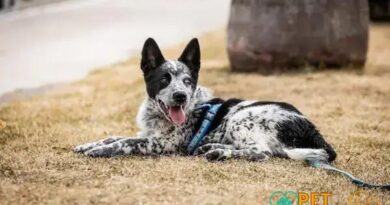O que é hunting dog breeds
What Are Hunting Dog Breeds?
Hunting dog breeds are specifically developed and trained to assist humans in hunting game. These breeds possess unique physical and behavioral traits that make them exceptional companions in the field. From their keen sense of smell to their agility and stamina, hunting dogs are invaluable assets for hunters seeking to track and retrieve various types of game.
Characteristics of Hunting Dog Breeds
Hunting dog breeds typically exhibit a combination of intelligence, energy, and strong instincts. They are often characterized by their heightened senses, particularly their sense of smell and hearing, which are crucial for locating and tracking prey. Additionally, many hunting breeds have a strong prey drive, which motivates them to pursue and retrieve game effectively.
Types of Hunting Dog Breeds
There are several categories of hunting dog breeds, each designed for specific types of hunting. Some of the most common types include pointers, retrievers, flushing spaniels, and hounds. Pointers are known for their ability to locate game and signal its presence to hunters, while retrievers excel in fetching game from water or land. Flushing spaniels are skilled at driving birds from cover, and hounds are renowned for their tracking abilities.
Popular Hunting Dog Breeds
Among the most popular hunting dog breeds are the Labrador Retriever, German Shorthaired Pointer, Beagle, and English Springer Spaniel. The Labrador Retriever is celebrated for its versatility and friendly demeanor, making it a favorite among hunters. The German Shorthaired Pointer is known for its speed and endurance, while the Beagle’s keen sense of smell makes it an excellent scent hound. The English Springer Spaniel is prized for its ability to flush game from dense cover.
Training Hunting Dog Breeds
Training is a crucial aspect of developing a successful hunting dog. It often begins with basic obedience training, followed by specialized training tailored to the specific hunting tasks the dog will perform. Positive reinforcement techniques are commonly used to encourage desired behaviors, and consistency is key to ensuring that the dog learns effectively. Socialization with other dogs and exposure to various hunting environments are also important components of training.
Health Considerations for Hunting Dog Breeds
Like all dogs, hunting breeds are susceptible to certain health issues. Common concerns include hip dysplasia, eye disorders, and obesity. Regular veterinary check-ups, a balanced diet, and appropriate exercise are essential for maintaining the health and well-being of hunting dogs. Additionally, responsible breeding practices can help reduce the risk of hereditary health problems in these breeds.
The Role of Hunting Dogs in Conservation
Hunting dog breeds play a significant role in wildlife conservation efforts. By assisting hunters in managing game populations, these dogs help maintain ecological balance. Responsible hunting practices, supported by trained hunting dogs, can contribute to the sustainability of wildlife resources and the preservation of natural habitats.
Choosing the Right Hunting Dog Breed
Selecting the right hunting dog breed involves considering factors such as the type of game being hunted, the hunting environment, and the owner’s lifestyle. Prospective owners should research various breeds to find one that aligns with their hunting goals and personal preferences. It’s also important to consider the dog’s temperament, energy level, and compatibility with family members.
Hunting Dog Breeds and Family Life
Many hunting dog breeds can adapt well to family life, provided they receive adequate exercise and mental stimulation. These dogs often form strong bonds with their families and can be loving companions outside of hunting activities. However, potential owners should be prepared to invest time in training and socialization to ensure that their hunting dog is well-behaved and comfortable in a home environment.
The Future of Hunting Dog Breeds
As hunting practices evolve and conservation efforts become more prominent, the role of hunting dog breeds will continue to adapt. Breeders and trainers are increasingly focused on preserving the unique traits that make these dogs exceptional hunters while also promoting responsible ownership and ethical hunting practices. The future of hunting dog breeds looks promising, with ongoing efforts to enhance their skills and ensure their well-being.



